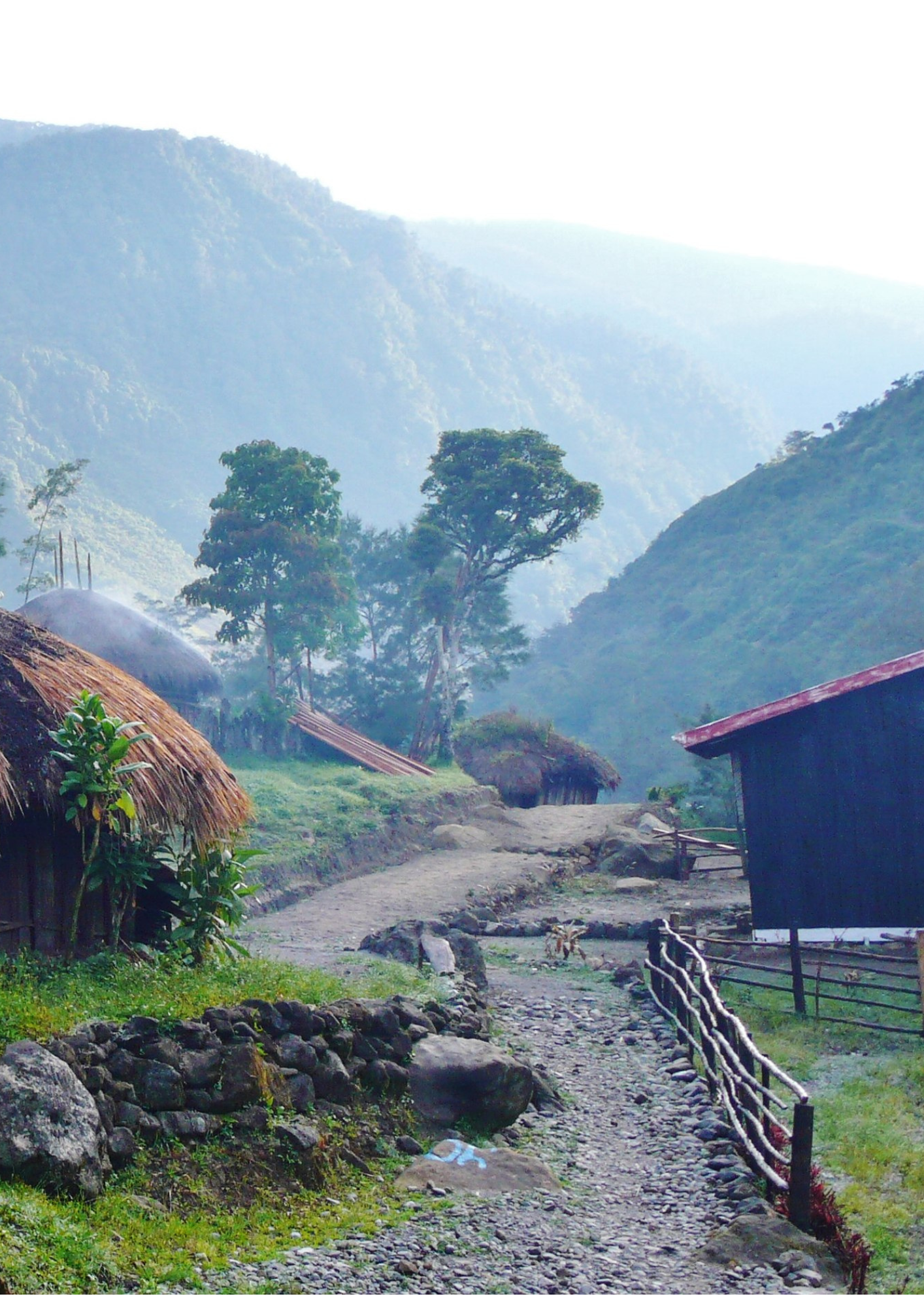Main Article Content
Abstract
Economic Welfare is a fundamental thing that is needed by humans to be able to live and develop, including by Muslim villagers in Papua. This study aims to analyze Community Empowerment Based on Islamic Economics to Develop an Autonomous Muslim Village at the Baliem Valley of Papua. This study uses qualitative data with a naturalistic approach to natural objects that develop as they are, are not manipulated and research does not affect the dynamics of these objects. The data sought is related to the description of the utilization of village potential in realizing an independent village based on an Islamic economy and the efforts made by several Islamic institutions in the Baliem Valley, Papua. The results of the research show that in order to become an independent village and the people live better, what needs to be done is not only structuring aspects of village governance, but also matters relating to its regional aspects, life arrangements and customs, village potential, readiness of social institutions, village politics and economy.
Keywords
Article Details
Copyright (c) 2022 Tiomy Butsianto Adi, Dafrin Mukhsin

This work is licensed under a Creative Commons Attribution-ShareAlike 4.0 International License.
Authors who publish with this journal agree to the following terms:
- Authors retain copyright and grant the journal right of first publication with the work simultaneously licensed under a Creative Commons Attribution License that allows others to share the work with an acknowledgement of the work's authorship and initial publication in this journal.
- Authors are able to enter into separate, additional contractual arrangements for the non-exclusive distribution of the journal's published version of the work (e.g., post it to an institutional repository or publish it in a book), with an acknowledgement of its initial publication in this journal.
- Authors are permitted and encouraged to post their work online (e.g., in institutional repositories or on their website) prior to and during the submission process, as it can lead to productive exchanges, as well as earlier and greater citation of published work (See The Effect of Open Access).
References
Ayu Diah Amalia dan M. Syawie, pembangunan kemandirian desa melalui konsep pemberdayaan: Suatu kajian dalam perspektif sosiologi (30 June 2015)
Callahan, Kathe. 2002. The Utilization and Effectiveness of Citizen Advisory Committees in The Budget Process of Local Government. Journal of Public Budgeting, Accounting and Financial Management. 14 (2) 295-319
Ebdon, Carol. 2002. Beyond the Public Hearing: Citizen Participation in the Local Government Budgeting Process. Journal of Public Budgeting, Accounting and Financial Management, 14 (2) 273-294.
Golla AM Dkk., Understanding and Measuring Women’s Economic Empowerment - Definition, Framework and Indicators (USA: International Center for Research on Women (ICRW)., 2011)., 18
Naila Kabeer, “Gender Equality and Women’s Empowerment: A Critical Analysis of the Third Millennium Development Goal,” Gender & Development 13 (March 1, 2005): 13–24
Soleh, Chabib. (2014). Dialektika Pembangunan dan Pemberdayaan. Bandung: Fokusmedia.
Kartohadikoesoemo, Soetardjo. (2002). Menyoal (Kembali) Otonomi Desa. Yogyakarta:Sumur Bandung, 2002.
Usman, Sunyoto. (2015). Esai-Esai Sosiologi Perubahan Sosial. Yogyakarta: Pustaka Pelajar. Hagul, Petere.(1985). Pembangunan Desa dan Lembaga SwadayaMasyarakat. Jakarta: Rajawali.
References
Ayu Diah Amalia dan M. Syawie, pembangunan kemandirian desa melalui konsep pemberdayaan: Suatu kajian dalam perspektif sosiologi (30 June 2015)
Callahan, Kathe. 2002. The Utilization and Effectiveness of Citizen Advisory Committees in The Budget Process of Local Government. Journal of Public Budgeting, Accounting and Financial Management. 14 (2) 295-319
Ebdon, Carol. 2002. Beyond the Public Hearing: Citizen Participation in the Local Government Budgeting Process. Journal of Public Budgeting, Accounting and Financial Management, 14 (2) 273-294.
Golla AM Dkk., Understanding and Measuring Women’s Economic Empowerment - Definition, Framework and Indicators (USA: International Center for Research on Women (ICRW)., 2011)., 18
Naila Kabeer, “Gender Equality and Women’s Empowerment: A Critical Analysis of the Third Millennium Development Goal,” Gender & Development 13 (March 1, 2005): 13–24
Soleh, Chabib. (2014). Dialektika Pembangunan dan Pemberdayaan. Bandung: Fokusmedia.
Kartohadikoesoemo, Soetardjo. (2002). Menyoal (Kembali) Otonomi Desa. Yogyakarta:Sumur Bandung, 2002.
Usman, Sunyoto. (2015). Esai-Esai Sosiologi Perubahan Sosial. Yogyakarta: Pustaka Pelajar. Hagul, Petere.(1985). Pembangunan Desa dan Lembaga SwadayaMasyarakat. Jakarta: Rajawali.




